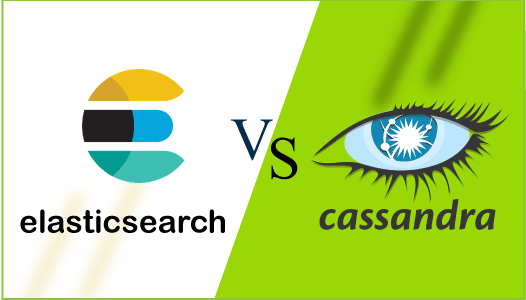Elasticsearch vs CassandraBoth Elasticsearch and Cassandra are NoSQL databases. Elasticsearch is a database search engine developed by Facebook, and Cassandra is a NoSQL database management system developed by Apache Open Source Projects. Elasticsearch is used to store the unstructured data, while Cassandra is designed to handle a large amount of data across the distributed community server. Both databases are open-source, so the users don't need to pay anything to use them.  However, Elasticsearch and Cassandra have some similarities like the NoSQL database and open-source products, but they also have some differences that make them different from each other. First, we will discuss briefly about Elasticsearch and Apache Cassandra separately and then their differences. Below is a list of differences of Elasticsearch and Cassandra. ElasticsearchElasticsearch is an open-source NoSQL database tool that can be easily deployed and operated. It is used for the analytic purpose and searching your logs and data in general. Basically, it is a NoSQL database to store the unstructured data in the document format. Remember that Elasticsearch can perform all three analysis, visualization and search operations on data only by integrating with Logstash and Kibana tools. The integration of Elasticsearch with Logstash and Kibana is known as ELK stack. CassandraApache Cassandra is a NoSQL database management system that belongs to the database category. It is developed by Apache Open Source Projects to handle the large-scale data across distributed community servers. It was released in 2008. It is an open-source that offers easy scalability and zero points of failure. Cassandra manages the data in rows and columns. It runs on JVM (Java Virtual Machine). Several popular companies like Spotify, Facebook, Netflix, Uber technologies, etc. use Apache Cassandra to handle their data across the distribute server. Difference between Elasticsearch and CassandraElasticsearch and Cassandra both have several similarities but also have some differences. Based on some parameters, we will discuss their differences in detail. A list of differences is given below:
ConclusionIn the end, come to the conclusion that which one is better Elasticsearch or Cassandra. Both are excellent tools for storing data. Apart from that, if we compare both of them, no doubt Elasticsearch is winner in terms of the latest object-oriented. As it's a NoSQL database which is based on Lucene that offers an excellent index-based search engine. This is an advantage of Elasticsearch. For the NoSQL database, Elasticsearch has been the best option as it includes another excellent feature that is search engine capability. Wherever based on some other features like performance and scalability, Apache Cassandra can also be taken into consideration that it is best database when it comes to handling large amounts of data. Next TopicElasticsearch vs Algolia |